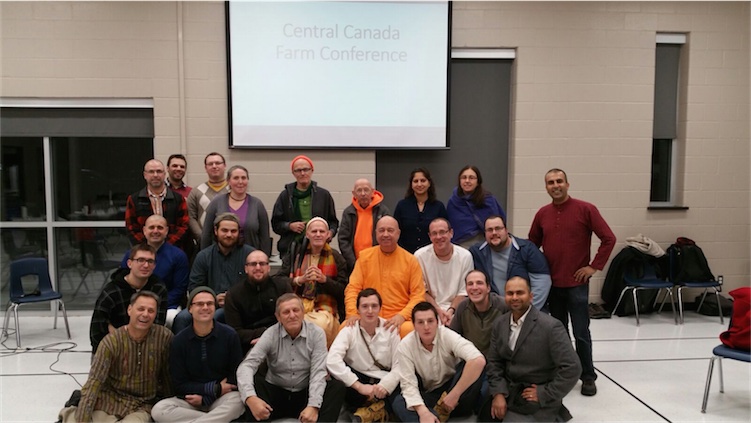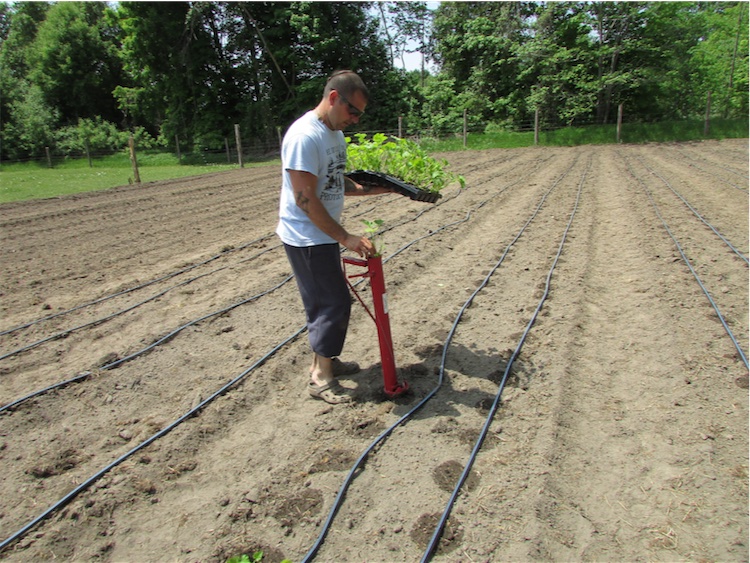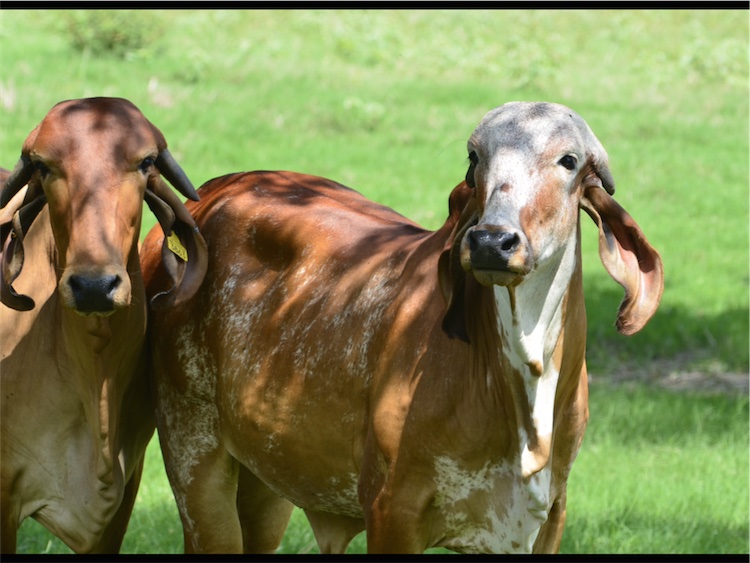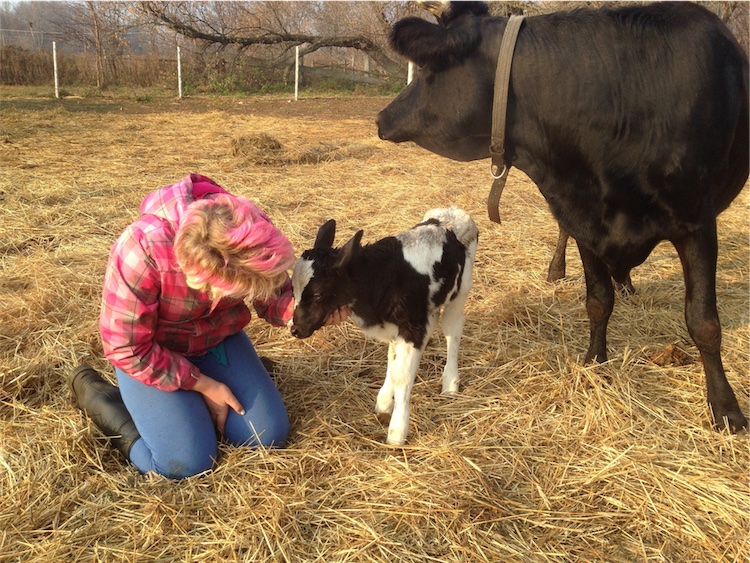Members of Krishna Farm Boom in Canada Meet to Collaborate
By Madhava Smullen | Янв 05, 2017

With a sudden boom of new Krishna conscious farm projects in Central Canada, their leaders gathered to discuss how they could collaborate with each other at the first ever Central Canada Farm Conference on December 17th.
Canadian GBC Bhaktimarga Swami and farmer Sukhayanti Dasi brought together twenty-six devotees from seven agrarian projects across Southern Ontario and Quebec for the conference, which took place at the King Edward Park Community Centre in Brighton, Ontario.
“We’ve been having a bit of a surge going on in the area, with multiple farming initiatives in Srila Prabhupada’s model starting to blossom seemingly out of nowhere,” Bhaktimarga says. “So we thought, let’s all get on the same page – let’s share experiences and knowledge, and create a mood of camaraderie and cooperation.”
The conference began with lunch and an introduction by Bhaktimarga Swami, who promotes a simpler way of life with his cross-country walks, and Bhakti-Raghava Swami, Minister for the ISKCON Daiva Varnasrama Ministry in India.
Representatives of each farm project then presented their varied projects. Some of these are established, and others still in the planning stages. Most are private family farms, but some are businesses or ashrams. And the people running them range from initiated devotees, to second-generation devotees, to newcomers to Krishna consciousness.
The first, a sixty-acre plot in Hastings, Ontario – an-hour-and-a-half Northeast of Toronto – is called Govardhan Farms. It is run by Filip, who trained with ISCOWP’s Balabhadra Das, and his wife Sukhayanti Dasi. A young couple, the two are focused on offering sanctuary to cows and bulls.

Filip planting crops at Govardhan farms
Another young couple, this time second-generation devotees Jaya Chaitanya Das and Rasa Manjari Dasi, have purchased a similar sized plot, called it “Holy Cow Farm Sanctuary,” and are gardening and caring for cows, bulls, and calves. Jaya Chaitanya is supporting the farm’s efforts through his computer animation job.
Meanwhile in Cobourg, Ontario, another second-generation couple, Arjun and Draupadi, run a highly successful kale chip business called Brandneu Foods. They grow the kale year round with a main 20-acre farm in Ontario and a summer crop in Florida, and process it in their Cobourg factory. They also protect a range of farm animals, from cows and bulls to sheep and turkeys.
Not all the farms are run by couples. Near Ottowa, Canada’s capital, a group of devotee bachelors are renting a renovated country home on farmland protected by the federal government’s farming initiatives. They harvested their first crop of vegetables this past summer, which they used to serve the local Deities and the devotees at Sunday programs. They also run a bed and breakfast business and hold Wednesday night gatherings for devotees.
Another project, in Picton, Ontario, is run by twin brothers who came to Krishna consciousness after their business was hired to clean the ISKCON Toronto temple. Vegetarians already before they became devotees, they were inspired to start their own farm.
In Caledon, Northwest of Toronto, a husband and wife, Vishal Das and his wife Yasomati Dasi – who were raised in Canada but are of Punjabi background – purchased a large property using savings from their successful mattress business. They have harvested their first crop of potatoes, and also care for horses and Zebu cows, an Indian breed which yields very high quality milk.

Zebu cows at Vishal and Yashomati’s farm in Caledon, Ontario
Finally, two devotees, Etienne and Johann, presented their project Sri Surabhi Dhama, a 75-acre piece of land in Quebec that is still in the conceptual stage.
To conclude the first part of the conference, Kevala Bhakti Das, a member of the Toronto Temple Council, reported on devotees’ “very positive conversations” with the Dairy Farmers of Ontario, the local branch of Canada’s highly regulated dairy industry.
“They had three meetings with us, and told us that they would be open to trying to figure out some solution for our Ahimsa milk needs,” says Kevala Bhakti. “However it must be noted that the talks are at a very embryonic stage, and we are working on organizing ourselves more before taking them further.”
After a tea and cookie break, the conference continued with Kevala Bhakti facilitating an open discussion on questions like ‘What are our collective themes and goals?’ ‘Do we have a shared direction?’ and ‘Would we like to see further gatherings like this?’
The discussion was overwhelmingly positive, with a generally expressed desire to work together in cooperation.
The conference concluded with five clear action goals. Firstly, Google and Facebook groups were launched as a way for all the farm projects to stay in touch with each other.

Giving some love to a sweet little calf at Rasa Manjari and Jaya Chaitanya’s Holy Cow Farm Sanctuary
Secondly, there was an agreement to hold the conference annually or biannually, with the next one set for late March 2017.
Thirdly, a plan was made to collaborate in some effort at Canada’s major Rathayatras, beginning with Toronto Rathayatra. This may be a farmers’ market, or simply an information booth on all the agrarian projects, so that devotees, newcomers and spiritual seekers can see the Hare Krishnas’ progressive efforts at simple living and high thinking across Ontario and Quebec.
Fourthly, one group of devotees volunteered to research and share Srila Prabhupada’s teachings on farming and cow protection, so that this information was clear and easily accessible.
And finally, a plan was made for the Central Canadian farmers to join forces with ISKCON Canada’s national leaders, who also identified farming and cow protection as a priority at their recent meetings.
Looking to the future, Bhaktimarga Swami says that a major goal is not to repeat the mistakes of the past.
“ISKCON the institution doesn’t own these projects – Bhakti Raghava Swami and myself were there simply to inspire and encourage, not to control anything” he explains. “I think that was the problem in the past – the society would own a big plot of land, and grihastas were asked to work on it. The big flaw was that if you don’t give ownership to people, it’s bound to fail. As the saying goes, ‘ownership turns sand into gold.’ So what’s unique about this new model is that devotees have the freedom they need to make their projects work.”
And, of course, everyone aims to retain the uplifting mood of cooperation generated by the conference.
“Cooperation is something Srila Prabhupada always emphasized,” Bhaktimarga Swami says. “If we want to be effective in changing the world and making it a better place, then we must work together.”















